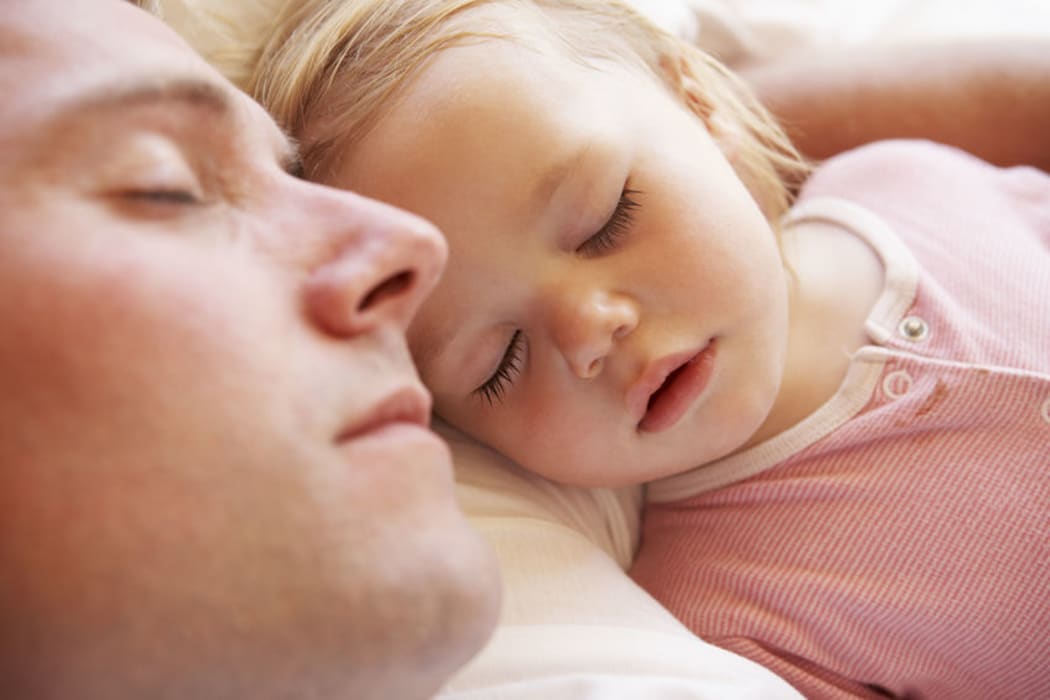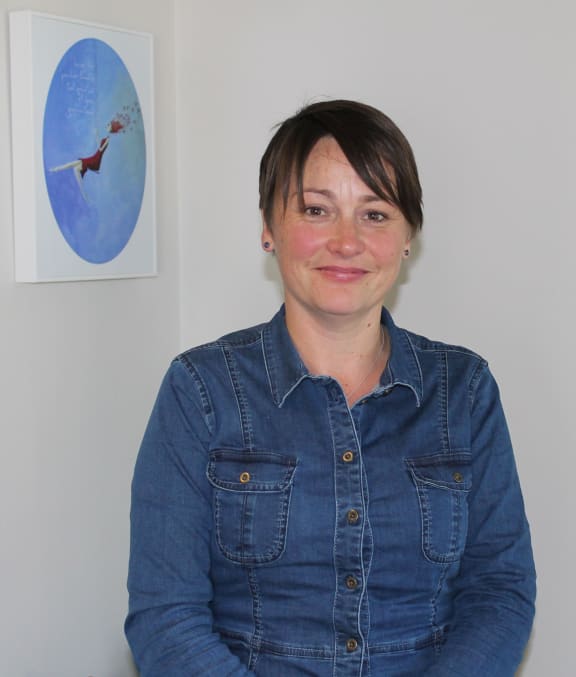Why won't my child go to bed ? What if she wakes in the night ? And what about nightmares ? For many parents bedtime is a battle ground. In Episode Ten of Are We There Yet ? Katy Gosset looks at the struggle to sleep.
Listen to the full podcast here:
Subscribe free to Are We There Yet. On iPhones: iTunes, RadioPublic or Spotify. On Android phones: RadioPublic or Stitcher.

Photo: stockbroker/123RF
We’ve all been there.
Whether it’s sitting for ages in a child’s bedroom, murmuring soothing words ...
Offering "just one more story”...
Or listening, anguished, to crying from another room, whilst bargaining with our partner or spouse: “No, you go this time,” “It’s your turn.”
And our children can be at their most resourceful when it comes to subverting the night time ritual.
“They try lots of tricks, like more stories or even tidying to try and prevent going to bed” - Father of three, stepfather of three more.
For babies and young children habits form and it can be up to parents to break them.
"With the twins, they reached nine months and they still weren't sleeping through the night and I was so tired" - Mother of six

Photo: candy18/123RF
And for this mother, allowing them to cry while her husband continued to check on them soon brought results.
"After three days they were sleeping all night long. I kicked myself for not doing it sooner. Nine months of waking up all the time is just insane."
As children age, their bedtime varies but when they get cranky, an early bedtime is often a good idea.
"The earlier the better, it just goes downhill the later it gets and the grumpier they get or the more amped they are" - Father of three, stepfather of three more.
And parents have to accept that children are individuals and will have different needs
"I like to sleep a lot and I know two of my children are the same as me. Whereas other ones in the family, when they get tired, they run around like lunatics and they get really hyper" - Mother of six

Photo: rido/123RF
Learning to Settle
Clinical Psychologist and mother of two Catherine Gallagher knows first-hand what it's like when a child won't sleep.
"It wasn't 'til I was a parent of a new born with reflux that I realised why sleep deprivation was a torture strategy."
And it's torturous because, young or old, we all need sleep.
"Sleep is vital for brain development and physical health. So we need our babies to sleep for both their health and our sanity."
Ms Gallagher said about sleep problems were common with about 25 percent of infants affected at any one time.

Catherine Gallagher Photo: RNZ / Katy Gosset
"About 10 percent of these are going to develop some quite problematic sleep issues."
She said any difficulties under the age of 6 months were not yet considered sleeping issues but problems that persisted beyond this might need interventions.
Ms Gallagher said it was helpful for parents to remember that, for young children, sleep was still a random and confusing concept.
"We close our eyes and go unconscious and even though, as adults, we go "Yay, end of the day, I could use a bit of unconsciousness", for kids it's like "What ?? This is kind of weird."
Ms Gallagher said there was evidence to suggest children who could not settle themselves to sleep would have problems down the track
"Research shows pretty consistently that infants who are put into their cot asleep often go on to develop sleep problems because they're not learning how to settle to sleep on their own."
And that was when the dos and don'ts of "controlled crying" often entered the fray.
"Graduated, controlled crying - in other words - developing and sticking to a routine of settling your child, and then allowing them to cry with some minimal checking and support, works. And that's really important to hear."
While "controlled crying" was sometimes controversial, Ms Gallagher said concerns about the practice were unfounded.

Photo: chalabala/123RF
"Unfortunately there's been a lot of bad press around controlled crying with some even saying it's tantamount to child abuse as it disrupts attachment and develops learned helplessness in the child."
But she said there was no evidence to support this, as long as other aspects of the relationship were secure.
"So if a controlled crying programme is put in place where there are lots of difficulties with that relationship and the child fundamentally isn't feeling safe then that can be problematic.'
However she said when controlled crying took place in a loving family environment, with safe and consistent parenting practices, there was a good chance of success.
"If those other factors are in place then, in fact, kids learning to settle themselves can be a really healthy part of development."

Photo: jawwa/123RF
Other factors that could interrupt a good night's sleep were nightmares and night terrors, both of which could cause anxiety for parents.
Catherine Gallagher said most children would have no recall of night terrors although nightmares might need more intervention.
"They may well need some emotional support at that time just to make sense of that experience and to reconnect and, with a little bit of support, then being back in bed and off to sleep."
Ms Gallagher said parents could encourage children to re-write the nightmare, casting themselves in the role of hero to help take some control of the experience.
She also recommended that parents prepare for any future incidents, planning what they might say or keeping a nightmare-catching kit at the ready.
Cuddles, tickling and soothing words could all help the child to resettle back to sleep on his or her own.
"Rather than cross your fingers and hoping for the best, it's about having a plan."
For slightly older children who were reluctant to go to sleep, Ms Gallagher said it was worth stepping back to see what else was happening in the child's life.

Photo: chomnancoffee/123RF
In some cases, it might be that bedtime was associated with access to parents.
"If life's particularly busy for the family, bedtime might be the time when suddenly they've got Mum and Dad and they're going to grab on like limpets and not let go."
She said, if that was the case, parents should try to find some other time in the day to connect with their child so the parent/child time was not always associated with separation at bedtime.
And sometimes it was just about being firm: offering rewards for staying in bed and setting consequences if they didn't
But, ultimately Ms Gallagher said there was no easy fix to the issue and children simply needed to learn to regulate themselves.

"The child is going to have to go through a phase of feeling unsettled before they sleep and that's actually life.
"So we can't help the child avoid that. What we have to do is help the child tolerate that and be settled enough to slip off to sleep."

